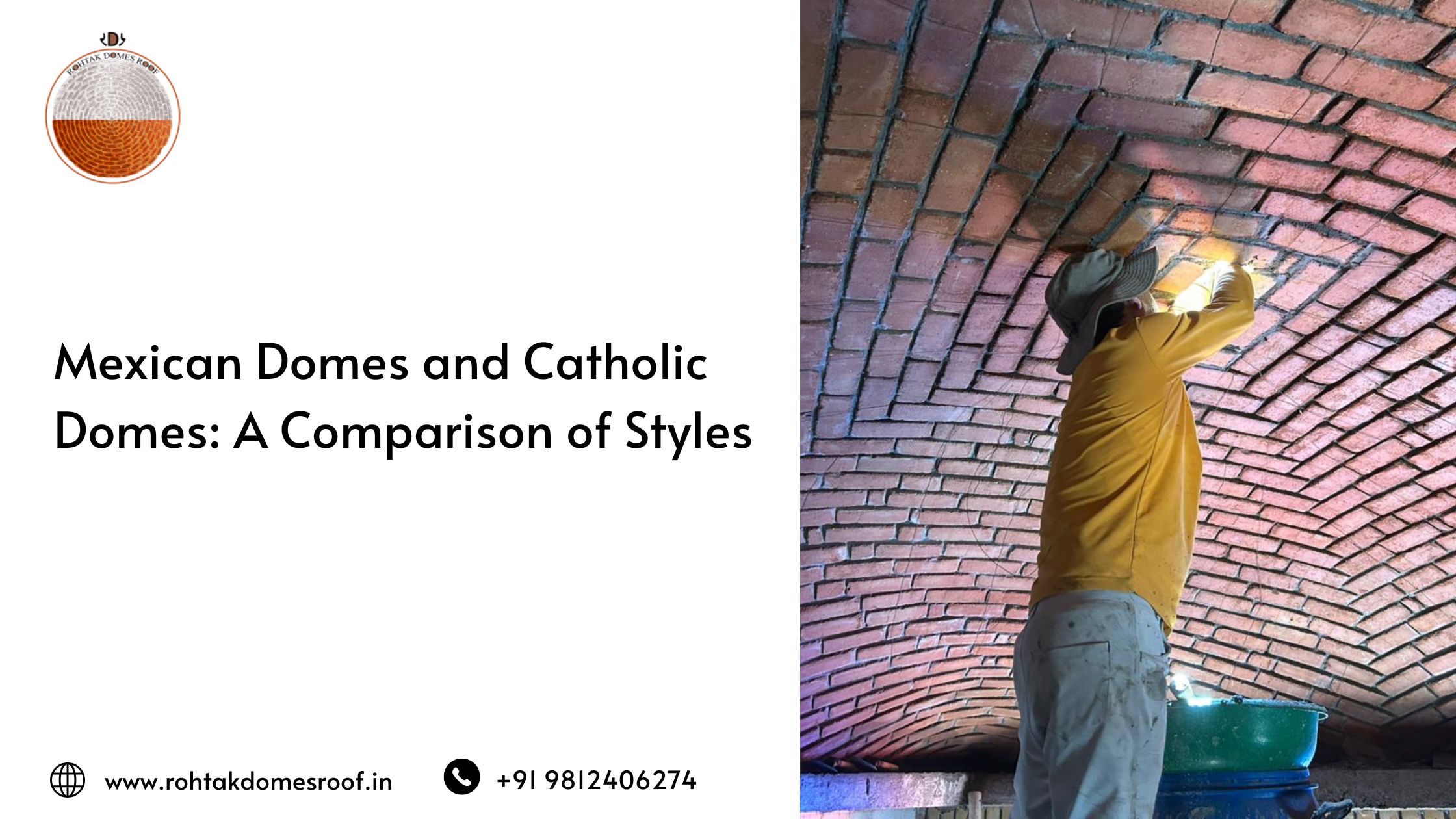
Domes have played a significant role in architectural history, particularly in religious and cultural structures. Two prominent styles—Mexican domes and Catholic domes—stand out for their distinctive designs and historical significance. Rohtak Domes specializes in crafting high-quality domes, including these architectural marvels, ensuring excellence in every project.
Mexican Domes:
Mexican domes are known for their colorful and artistic designs, reflecting the rich cultural heritage of Mexico. They often feature:
- Handcrafted Tiles: Brightly colored ceramic tiles arranged in intricate patterns.
- Rounded or Conical Shapes: Inspired by Spanish and indigenous influences.
- Stucco or Brick Construction: Offering durability and a rustic aesthetic.
- Ornate Finishes: Often adorned with murals, mosaics, or decorative metalwork.
Catholic Domes:
Catholic domes are often seen in churches and cathedrals, symbolizing divine connection and grandeur. Key characteristics include:
- Large, Majestic Structures: Designed to inspire awe and reverence.
- Use of Stone and Marble: Enhancing durability and elegance.
- Elaborate Frescoes and Stained Glass: Depicting religious scenes and biblical stories.
- Central Lantern or Cupola: Allowing natural light to illuminate the interior.
Key Differences Between Mexican and Catholic Domes
| Feature | Mexican Domes | Catholic Domes |
| Design | Colorful, artistic | Grand, symbolic |
| Materials | Brick, stucco, tiles | Stone, marble, stained glass |
| Size | Medium to small | Large and towering |
| Decorative Elements | Hand-painted tiles, mosaics | Frescoes, stained glass, cupolas |
| Influence | Spanish and indigenous | Classical European architecture |
Conclusion
Both Mexican and Catholic domes showcase stunning craftsmanship, each with its unique charm and purpose. While embrace vibrant artistry, exude grandeur and spiritual symbolism. Rohtak Domes brings expertise in dome construction, offering designs that blend tradition with modern innovation.